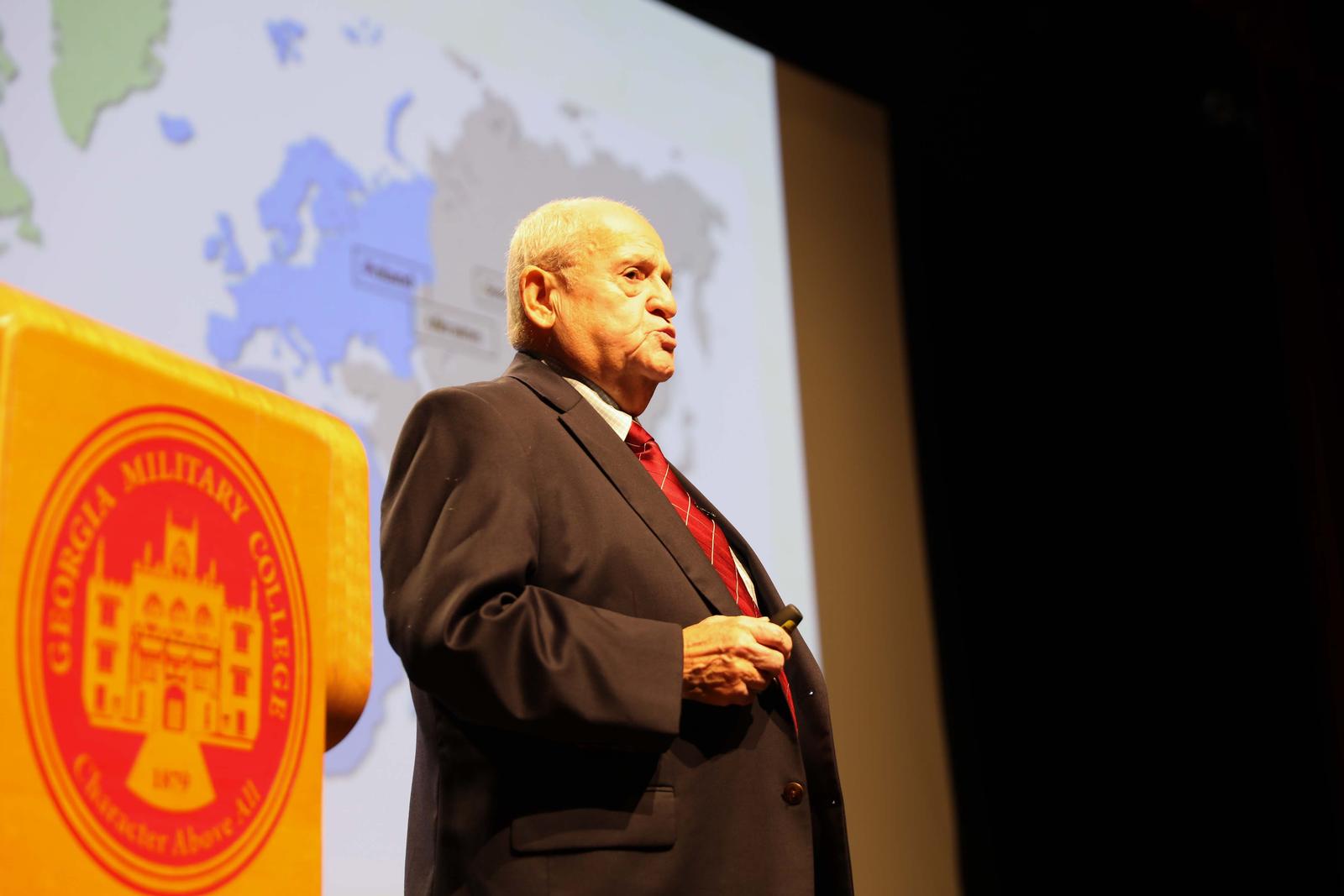GMC News
Holocaust Survivor Speaks to GMC Students
Holocaust Survivor Speaks to Georgia Military College Students

On Wednesday, February 5, 2020, Georgia Military College (GMC) welcomed a Holocaust survivor, Herschel Greenblat, to campus. Students at both GMC Prep School and the college had the opportunity to hear about Greenblat’s experiences in Austria, after World War II. The Georgia Commission (GCH) on the Holocaust presented the event in the Goldstein Center for Performing Arts on GMC’s Milledgeville campus.
Greenblat, born in the Ukraine in 1941, spent his first two years of life hiding in a cave. The German invasion of the Soviet Union had already begun and Hershel’s parents moved frequently to avoid capture, scavenging for food and fighting illness without medicine. After the war ended, the Greenblat family lived in Displaced Purpose Camps in Austria for five years before receiving permission to immigrate to the United States. The family traveled directly to Atlanta, where they began their new life.
Sharing the story of a Holocaust survivor is something Dr. John Fahey, GMC – Milledgeville Professor of History, says is important for students to hear.
“The Holocaust is a difficult topic to understand,” Fahey said. “Seeing a survivor helps to put a human face on the Holocaust. Listening to a survivor helps us to understand what it was like for one person, one family, or one community, and to develop empathy. Our students will have the chance to listen to someone directly impacted by the Holocaust, making history alive and relevant.”
The GCH coordinates Holocaust education throughout the state and arranges speaking engagements for Holocaust survivors to Georgia students and audiences. Fahey says understanding the ramifications of the Holocaust is important as students go out into the world so that something like the Holocaust doesn’t happen again.
“Since the Holocaust, survivors, witnesses, and scholars have asked the world to remember the Holocaust and never let it happen again,” Fahey said. “Sadly, we are failing. This is a challenging time in America and the world. The Holocaust shows the logical endpoint of hatred and why intolerance must be stopped. I hope this event will help students to grapple with the past, see the human cost of intolerance, and remember the past. We have the chance to see a direct witness of the Holocaust – and will soon have the duty to bear witness too.”
For more information about the Georgia Commission on the Holocaust, visit www.holocaust.georgia.gov.

